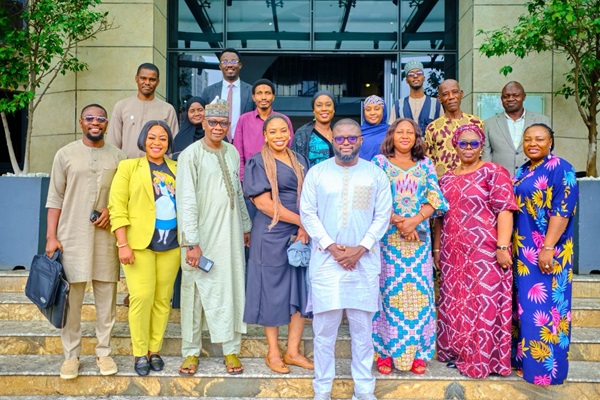
The Federal Government has reaffirmed its unwavering commitment to reducing preventable maternal deaths by institutionalising maternal emergency care as a permanent fixture in Nigeria’s healthcare delivery system, rather than as a temporary intervention.
This assurance was made during a two-day workshop in Abuja convened to review advocacy and behavioural change communication tools for the World Bank-supported Improving Maternal and Child Health in Nigeria (IMPACT) – Rural Emergency Service and Maternal Transport (RESMAT) project.
Head of operations at the National Emergency Medical Services and Ambulance System (NEMSAS), Dr. Doubra Emuren highlighted the transformative potential of the RESMAT initiative, describing it as a timely and lifesaving solution tailored specifically for pregnant women in underserved rural communities.
“RESMAT came into being as a targeted response to maternal emergencies in remote areas. It doesn’t replace the work of NEMSAS; it complements and reinforces it,” Emuren said. “We must institutionalise maternal emergency care as a permanent national strategy – not just treat it as a pilot.”
He explained that the RESMAT programme is designed to address the three critical delays that often lead to maternal mortality: the delay in deciding to seek care, the delay in reaching a health facility, and the delay in receiving appropriate care upon arrival.
With an ambitious target of reaching 1.7 million pregnant women in 15 states by December 2025, RESMAT will deploy an innovative, decentralised approach. This includes the use of tricycle and boat ambulances, community-based emergency responders, ward-level dispatchers and a voucher-based payment system to ensure affordability and access.
According to Emuren, RESMAT aligns closely with Nigeria’s broader health sector goals under the Health Sector Renewal Investment Programme, including the pursuit of Universal Health Coverage (UHC), sector-wide approaches (SWAp) and the Maternal and Infant Health Initiative (MAMI).
“This is more than a programme – it’s a national movement to save mothers’ lives,” he emphasised. “Everyone has a role – from federal policymakers to the local town crier.”
Participants at the workshop called for strong community ownership and culturally sensitive messaging to drive behavioural change. They also advocated for the formal integration of traditional birth attendants (TBAs), who often serve as the first and only healthcare providers in remote areas like Makoko in Lagos and rural communities in Bauchi and Kano.
However, several risks to the programme’s sustainability were identified, including sociocultural resistance, weak infrastructure, insecurity, fragile health systems and political transitions that may disrupt progress.
Stakeholders recommended embedding RESMAT into state health financing frameworks, strengthening data and referral systems, engaging local influencers and communicating through local languages and forums to secure lasting impact.

